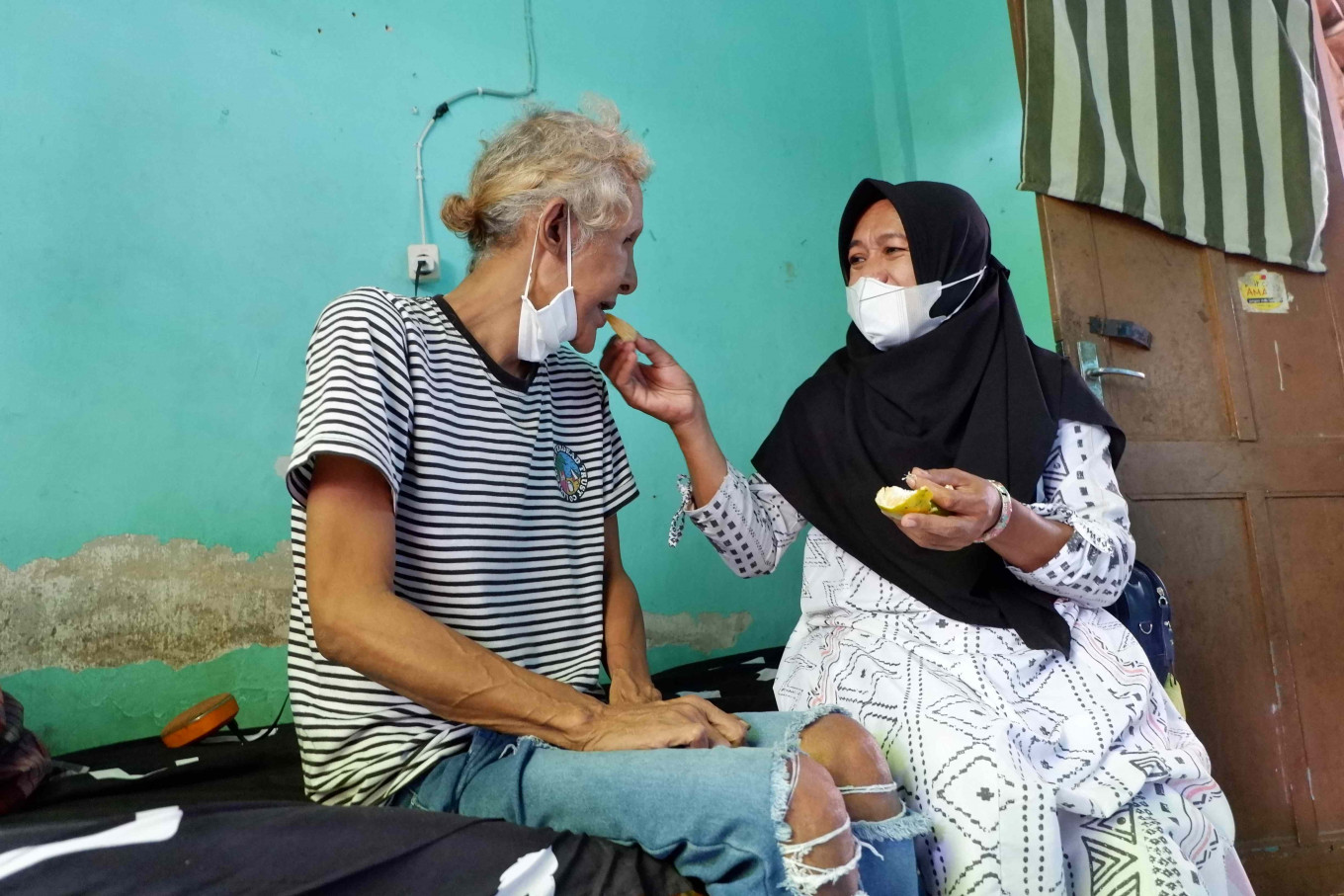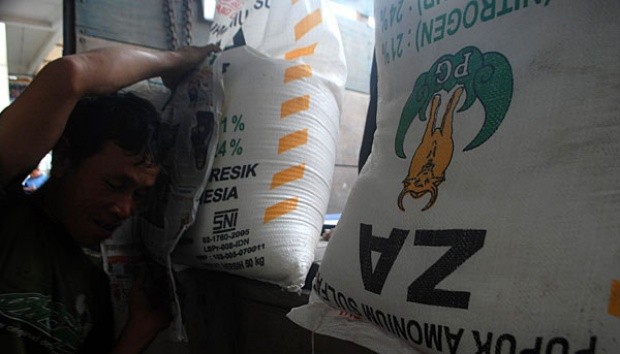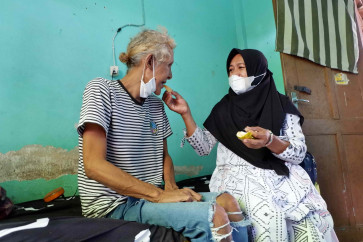Popular Reads
Top Results
Can't find what you're looking for?
View all search resultsPopular Reads
Top Results
Can't find what you're looking for?
View all search resultsIndonesia behind in protection for elderly
The government is facing mounting pressure to provide stronger protection for senior citizens following the recent death of an elderly couple in Bogor, West Java, who were reportedly abandoned by their family.
Change text size
Gift Premium Articles
to Anyone
T
he government is facing mounting pressure to provide stronger protection for senior citizens following the recent death of an elderly couple in Bogor, West Java, who were reportedly abandoned by their family. Experts subsequently urged authorities to learn best practices from other countries, such as the United Kingdom and Japan.
Earlier this month, Hans Tomasoa, 83, and his wife Rita Tomasoa, 73, were found dead at their home in Singajaya village, Jonggol district, Bogor regency, after not being seen for several days. The neighbors assumed that the couple had been abandoned by their three sons who rarely visited despite living in the neighboring cities of Bandung, Bekasi and Jakarta.
While their children quickly dismissed the allegations of neglect, this case has shed a light on the vulnerability of the elderly in Indonesia to violence, including abandonment, psychological and physical abuse as well as financial exploitation, with experts saying that most incidents still go unreported.
“The causes of such violence are diverse, but most of them cannot be separated from the unequal power relations between the elderly and more dominant figures within the family or outside,” Khotimun Sutanti of the Indonesian Women’s Association for Justice (LBH Apik) told The Jakarta Post last week.
Read also: Inclusive elderly care: Creating pathways for a better future
Meanwhile, international aid group Oxfam in Indonesia said that the recurrence of violence against the elderly is a result of caregiving responsibilities falling mainly on people’s family members. Limited care services also contribute to the problem.
“Now, if we say that adult children don’t need to take care of their parents because the elderly have rights as citizens [to receive attention and care from the state], the reality is that state-owned nursing facilities are still far from sufficient,” Oxfam Indonesia country director Maria Lauranti said, adding that existing facilities mostly cater only to very poor and neglected elderly people without relatives.



















